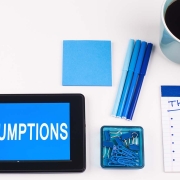How to Have a Successful Divorce Mediation: Start with Setting Goals
Divorce is stressful and having a successful divorce can be daunting. It’s one of those paradoxes of life—you’re expected to make huge, life-altering decisions when you might be feeling anything but calm and collected. The truth is, it’s tough to think straight when emotions are running high, and that’s perfectly normal.
A lot of couples starting divorce mediation feel overwhelmed, but here’s the good news: you don’t need to have all the answers right now. What can help is taking a step back and thinking about your goals. Even if you’re not sure how to get there, knowing what really matters to you can be a huge step toward making clearer, more confident decisions.
Why Goal-Setting Can be a Game-Changer for a Successful Divorce Mediation
Mediation is all about collaboration, and one of the best ways to keep things moving in the right direction is by setting thoughtful, clear goals. These goals will guide the entire process, helping you focus on the big picture and reduce getting caught up in the emotional rollercoaster.
Sharing your goals with your spouse and your divorce mediator right from the start creates clarity, helps find common ground, and keeps everyone anchored during the tough moments. Here are a few examples of the kinds of goals to think about.
The Outcomes You Want
At the heart of every mediation are the outcomes that matter most to each of you—things like dividing assets fairly, creating a parenting plan, or ensuring financial stability after the divorce. Or, maintaining a friendship, planning for a comfortable retirement, parenting well together, or staying connected to the dog! The goals are personal to you and your situation. By having clear goals for these key outcomes you are identifying the divorce destination. The divorce mediation is the process to map out the steps needed to arrive at those destinations. And when you both know what you’re aiming for, it’s easier to collaborate and find solutions that work for everyone.
How You Work Together
It’s not just what you want that matters—it’s how you get there, too. Divorce can stir up a lot of emotions, and sometimes that can lead to unproductive arguments or power struggles. Setting goals for how to work together can help establish shared communication guidelines, expectations, or norms for how you’ll communicate during mediation. For instance, maybe you agree to not interrupt each other. Or to summarize to check for understanding. Or take a break when you’re getting frustrated. Getting on the same page about how to work together can go a long way toward reducing conflict and keeping things on track.
Short-Term, Intermediate, and Long-Term Goals
Think about your goals on different timelines. What needs to be sorted out right away, like who stays in the family home? What needs attention in the next year, like helping your kids adjust to a new routine? And what’s on the horizon in the long-term, like ensuring both of you are financially independent or that your children grow up in a stable, loving environment? Stepping back and looking at your situation from a distance (a “balcony view“) can help you assess if your agreements are fair and reasonable in the short and long term.
Goals for Your Kids
If you have children, this is probably one of your biggest concerns. Setting goals that prioritize their well-being—like a parenting schedule that works for everyone, or decisions about who’s responsible for what—can help ensure your children continue to thrive, even as things change. Perhaps the goal might be driven by your child’s special needs’ considerations. Or by their connection to their friends and community. Or perhaps wanting to be sure they have proverbial skin in the game when it comes to college financing. As parents, your parenting values, philosophies, and aspirations can help guide the development of a good parenting plan.
Just Like a GPS…
Picture this: you wouldn’t head out on a road trip without a map (or a GPS these days, right?). Setting goals for your divorce mediation is kind of like having that map. It keeps you pointed in the right direction, even when the road gets a little bumpy. With shared and individual goals guiding the way, you’re setting yourself up for a smoother, more successful divorce process.
If you would like to learn more about how divorce mediation or collaborative law might help your situation please schedule a complementary half-hour divorce mediation consultation with Ben Stich or a member of his stellar mediation team.






